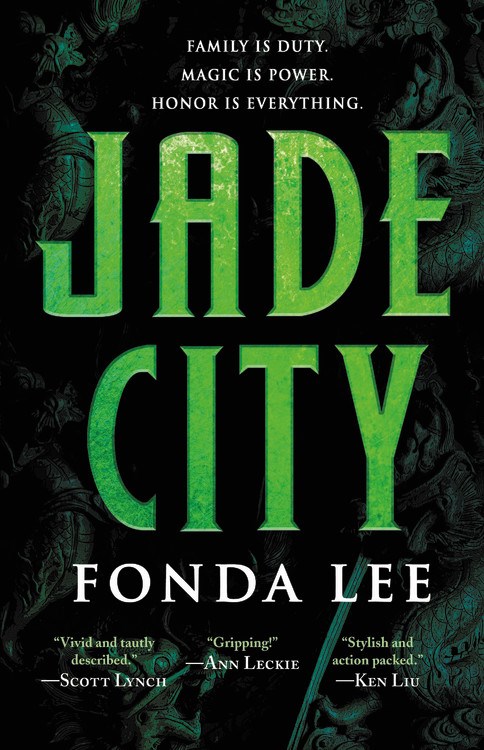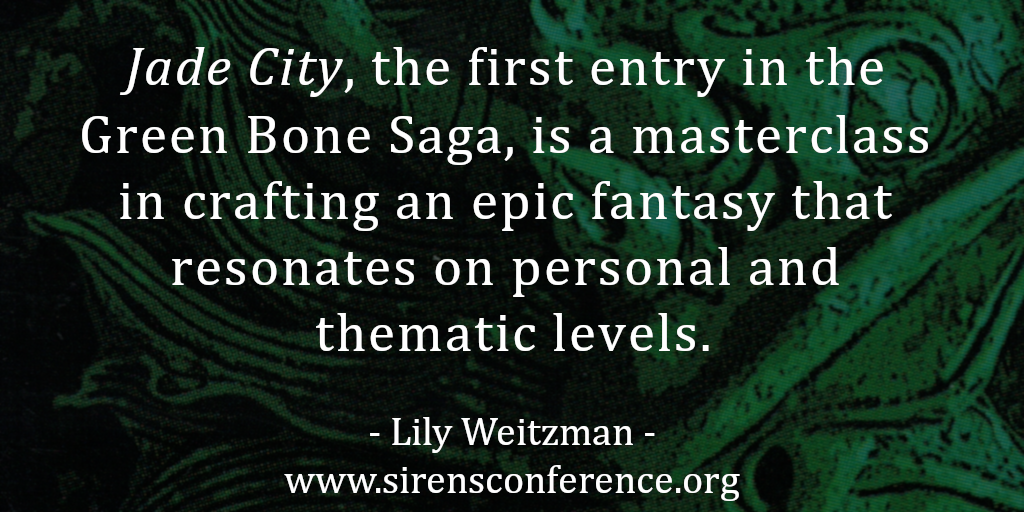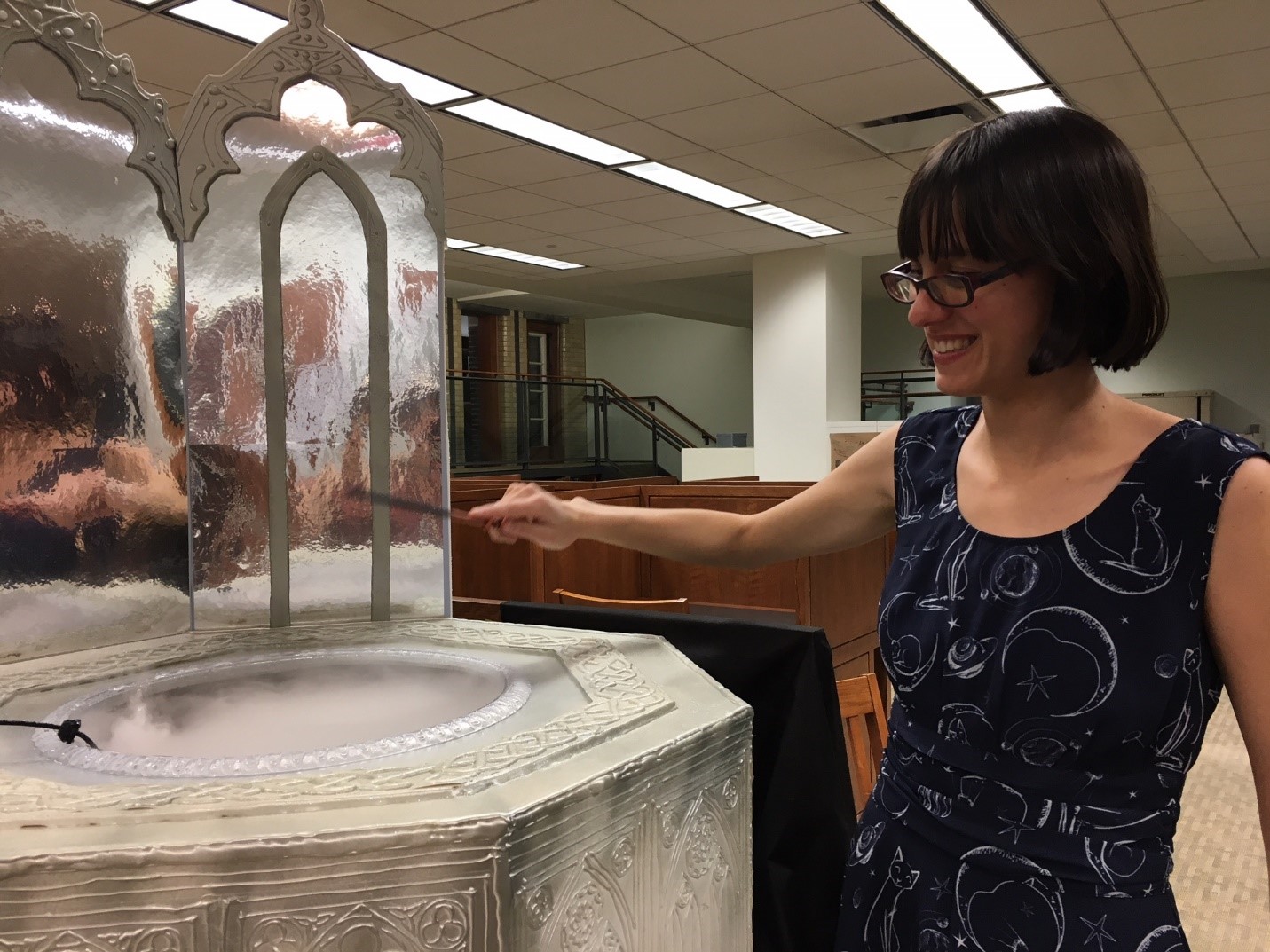
Midway through Jade City, I realized that I felt complete trust in its author to a degree that I had never felt before. I trusted that Fonda Lee knew her world, from its geopolitics to its cuisine. I trusted that she knew her characters, how they would act and react, and where they would clash. I trusted that she knew her craft, that she knew how to spin character, setting, and conflict into the thread of the story. And that the story would be moving but never manipulating—that any triumph or heartbreak I felt for these characters would be thoroughly earned.
None of this trust was misplaced. Jade City, the first entry in the Green Bone Saga, is a masterclass in crafting an epic fantasy that resonates on personal and thematic levels.

On the island of Kekon, Green Bone warriors train in the use of jade. The island’s culture is entwined with this magical jade, which heightens strength and senses. Green Bone clans are integral parts of society, from their head families, to the Fists and Fingers who fight for them, to the lantern men whose businesses are pledged in their service.
In the No Peak Clan, leadership has recently passed to the patriarch’s grandson, the new Pillar Kaul Lan. Lan’s fiery brother, Hilo, is at his right hand; his sister Shae is just returning to Kekon after years abroad, determined to live her life outside the clan. But the Mountain Clan is moving to challenge No Peak, and a new drug is letting others use jade with no regard for Kekonese traditions and training. Now the Kaul siblings must figure out how to steer their clan forward in a changing world.
This time of transition yields a narrative rich in characterization, nuanced strategy, and thrilling fight choreography as the Green Bones of No Peak fight for their clan. As the conflict unfolds, the next generation of Green Bones are finishing their training, adopted Kaul cousin Anden among them. He and his classmates build jade tolerance and learn how to harness disciplines like Strength, Perception, and Lightness. Yet Anden worries about his high sensitivity to jade, which makes him powerful but potentially susceptible to overexposure.
In addition to its jade-enhanced martial arts, Jade City has all the elements I enjoy in gangster stories, from the strategizing to the family saga. Yet it is self-aware enough not to fall into the casual sexism and erasure of women that are so common in that genre. Kekon isn’t free from sexism, but Lee examines it and features women characters who claim their agency. It’s refreshing to read a gangster story that reframes the genre and addresses its problematic elements.
Gangster family sagas are rich with tension between the familial sphere and ruthless, violent business. Jade City makes excellent use of this tension. The Kaul siblings carry the baggage of lifelong family dynamics as they calculate their next move in clan business. They reckon with their relationships to Kekonese traditions even as times change and international politics loom ever larger over their small island. Jade City has all the elements I enjoy in gangster stories, from strategizing to family legacy. Yet it avoids the casual sexism and erasure of women that can occur in the genre. Kekon isn’t free from sexism, but Lee examines it and features women characters who claim their agency. The story is refreshing in its self-awareness.
Jade City blends intricate worldbuilding with emotional resonance, and each new piece of Kekonese history or folklore adds depth to the characters and setting. The ways the Kaul family grapples with tradition, continuity, and change feel real and nuanced. I felt deeply for these characters, whether my heart was breaking for them or I was raging at them. This is equally true of the sequel, Jade War, which expands the geographic and cultural scope of its storytelling. I look forward to the final volume, Jade Legacy, and I trust that Fonda Lee will steer her world and her characters exactly where they need to go.

Lily Weitzman is a programming, outreach, and communications librarian at the Public Library of Brookline, Massachusetts. That means that on any given day, she might be found leading a poetry reading group, managing the science fiction and fantasy collections, teaching technology skills, or helping you find the title of that book you heard about on public radio. She has previously worked on a Yiddish oral history project and volunteered as an aquarium educator. Outside the library, Lily chairs the Yiddish Committee at Boston Workers Circle.







Connect with the Sirens community
Sign up for the Sirens newsletter